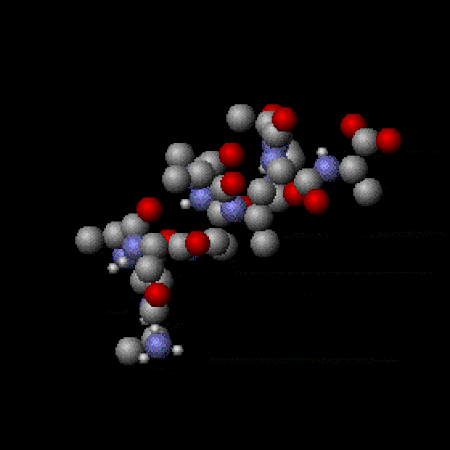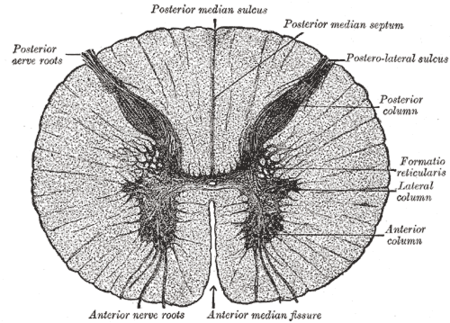Report on an Investigation of the Peasant Movement in Hunan
| |||||||||||||||||||||||||||
Read other articles:

British post-hardcore band This article is about the Welsh band. For other bands with similar names, see Blackout (disambiguation). This article relies excessively on references to primary sources. Please improve this article by adding secondary or tertiary sources. Find sources: The Blackout band – news · newspapers · books · scholar · JSTOR (September 2010) (Learn how and when to remove this template message) The BlackoutThe Blackout performing at …

Ada usul agar Marsekal penerbangan digabungkan ke artikel ini. (Diskusikan) Diusulkan sejak Juni 2023. Tanda kepangkatan Tentara Nasional Indonesia Angkatan Udara adalah daftar tanda pangkat yang digunakan di Tentara Nasional Indonesia Angkatan Udara hingga saat ini. Sebagaimana di kecabangan lainnya, kepangkatan terdiri dari Perwira, Bintara dan Tamtama. Tanda kepangkatan di bawah mengikut dari pakaian dinas yang digunakan. Di antaranya adalah Pakaian Dinas Upacara (PDU), Pakaian Dinas Harian (…

Bidadari yang TerlukaGenre Drama Roman Remaja Komedi Fantasi Skenario Eddy D. Iskandar Doddy Soeryaputra[a] CeritaTeam StarvisionSutradaraChrist HelwelderyPemeran Ria Irawan Donny Damara Bella Saphira Penggubah lagu tema Dwiki Dharmawan Eddy D. Iskandar Lagu pembukaBidadari yang Terluka oleh Ita PurnamasariLagu penutupBidadari yang Terluka oleh Ita PurnamasariPenata musikDwiki DharmawanNegara asalIndonesiaBahasa asliBahasa IndonesiaJmlh. musim1Jmlh. episode26ProduksiProduser ekseku…

Magnetic field within the Solar System This article needs additional citations for verification. Please help improve this article by adding citations to reliable sources. Unsourced material may be challenged and removed.Find sources: Interplanetary magnetic field – news · newspapers · books · scholar · JSTOR (December 2016) (Learn how and when to remove this template message) The heliospheric current sheet is a three-dimensional form of a Parker spiral th…

Island of Croatia Drvenik VeliSatellite image of Drvenik VeliDrvenik VeliGeographyLocationAdriatic SeaCoordinates43°26′39″N 16°08′44″E / 43.444226°N 16.145439°E / 43.444226; 16.145439Area12.07 km2 (4.66 sq mi)Highest elevation178 m (584 ft)Administration CroatiaCountySplit-DalmatiaDemographicsPopulation150 (2011) Drvenik Veli is a Croatian island in the Adriatic Sea. It is situated in the middle of the Dalmatian archipelago, …

Pelana bergaya Inggris yang digunakan untuk kuda pacuan Pelana adalah barang penyokong untuk penunggang kuda maupun muatan lain yang diikatkan ke punggung hewan. Sejarah Ada bukti, meski dipertentangkan, bahwa manusia mulai menunggang kuda tak lama setelah dijinakkan, kemungkinan di awal 4000 SM. Tak sampai sekitar tahun 700-800 SM, terdapat bukti yang dapat diperiksa bahwa pendahulu pertama pelana modern sudah digunakan, diperkirakan telah dikembangkan oleh bangsa Asiria, dan terdiri atas pakai…

Artikel ini bukan mengenai Elly Sugigi. Elly SunaryaLahirElly Setianelly Sunarya(1962-01-16)16 Januari 1962Bandung, Jawa Barat, IndonesiaMeninggal16 Januari 2010(2010-01-16) (umur 48)Amsterdam, BelandaPekerjaanpenyanyiKarier musikGenrePopCountryInstrumenvokalTahun aktif1985 – 1992LabelMusica Studio'sElly RecordArtis terkaitIwan FalsWacha HS Elly Sunarya (16 Januari 1962 – 16 Januari 2010) adalah seorang penyanyi berkebangsaan Indonesia yang populer pada era 80-an. Ia adala…

Online legal research service This article contains content that is written like an advertisement. Please help improve it by removing promotional content and inappropriate external links, and by adding encyclopedic content written from a neutral point of view. (October 2021) (Learn how and when to remove this template message) WestlawCompany typeSubsidiaryIndustryPublishingFounded1975; 49 years ago (1975)ProductsCase law, articles, publications, news, court documents, lawyer ma…

Capacité thermique La grande capacité thermique massique de l'eau donne à la bouillotte une grande capacité thermique sous un volume raisonnable.Données clés Unités SI joule par kelvin (J K−1) Dimension M·L 2·T −2·Θ −1 Nature Grandeur scalaire extensive Symbole usuel C X {\displaystyle C_{X}} à X {\displaystyle X} constant Lien à d'autres grandeurs C X = T ( ∂ S ∂ T ) X {\displaystyle C_{X}=T\left({\partial S \over \partial T}\right)_{X}…

Not to be confused with the historic Grey Columns building in Tuskegee, Alabama. Grey column of spinal cordCross section of the spinal cord. The three grey columns make up the butterfly-shaped shaded regionDetailsIdentifiersLatincolumnae griseaeTA98A14.1.02.101TA26063FMA77867Anatomical terminology[edit on Wikidata] The grey column refers to a somewhat ridge-shaped mass of grey matter in the spinal cord.[1] This presents as three columns: the anterior grey column, the posterior grey c…

Matius 13Injil Matius 13:55-56 pada bagian depan (recto) potongan naskah Papirus 103, yang ditulis sekitar abad ke-2 atau ke-3 M.KitabInjil MatiusKategoriInjilBagian Alkitab KristenPerjanjian BaruUrutan dalamKitab Kristen1← pasal 12 pasal 14 → Matius 13 (disingkat Mat 13) adalah pasal ketiga belas Injil Matius pada Perjanjian Baru dalam Alkitab Kristen, yang diyakini disusun menurut catatan Matius, salah seorang dari Keduabelas Rasul Yesus Kristus.[1][2][3] …

South Korean singer (born 1995) For the actor, see Park Jae-jung. In this Korean name, the family name is Parc. Parc Jae-jungParc in 2017Background informationBorn (1995-12-25) December 25, 1995 (age 28)Seoul, South KoreaGenresPop balladOccupation(s)SingersongwriterInstrument(s)GuitarYears active2013–presentLabelsCJ E&MMystic StoryRomantic FactoryMember ofMSG WannabeKorean nameHangul박재정Hanja朴宰正Revised RomanizationBak Jae-jeongMcCune–ReischauerPak Chaechŏng Musical artis…

Lobu TolongDesaGapura selamat datang di Desa Lobu TolongNegara IndonesiaProvinsiSumatera UtaraKabupatenHumbang HasundutanKecamatanParanginanKode pos22475Kode Kemendagri12.16.04.2006 Luas... km²Jumlah penduduk... jiwaKepadatan... jiwa/km² Lobu Tolong merupakan sebuah desa di Kecamatan Paranginan, Kabupaten Humbang Hasundutan, Provinsi Sumatera Utara, Indonesia. Pranala luar (Indonesia) Keputusan Menteri Dalam Negeri Nomor 050-145 Tahun 2022 tentang Pemberian dan Pemutakhiran Kode, Data Wil…

Railway station serving the city of Tours, France Tours General informationLocationPlace du Général-Leclerc 37000 ToursFranceCoordinates47°23′23″N 0°41′37″E / 47.38972°N 0.69361°E / 47.38972; 0.69361Owned bySNCFOperated bySNCFLine(s)Intercités, TERPlatforms6Tracks12ConstructionArchitectVictor LalouxOther informationStation code87571000IATA: XJT[1]HistoryOpened1846Passengers20165 156 584 Services Preceding station Le Réseau Rémi Following station T…

Sh**ting StarsPoster promosiHangul별똥별 GenreKomedi romantisPembuattvN[1]Studio Dragon[1]Ditulis olehChoi Young-woo[2]SutradaraLee Soo-hyun[2]PemeranLee Sung-kyungKim Young-daeMusikKim Joon-seok (Movie Closer)[3]Negara asalKorea SelatanBahasa asliKoreaJmlh. episode16ProduksiDurasi60 menit[4]Rumah produksi Mays Entertainment[2] DistributortvNiQIYIRilis asliJaringantvNFormat gambar1080i (HDTV)Format audioDolby DigitalRilis22 April (2…

Telephone numbers in CambodiaLocationCountryCambodiaContinentAsiaTypeOpenFormat0XX-XXX-XXX0XX-XXX-XXXXAccess codesCountry code+855International access00XLong-distance0 International Calls International Access Codes are also used to select the operator. All are starting with 00 while the third number is identifying the operators gateway. Currently there are 3 active codes: Gateway 1 (MPTC or Telecom Cambodia) - 001 Gateway 2 (Royal Telecam International) - 007 VoIP Gateway - 008 All other combina…

Thierry FrémontThierry Frémont pada 2010Lahir24 Juli 1962 (umur 61)PrancisPekerjaanPemeranTahun aktif1984–kini Thierry Frémont (lahir 24 Juli 1962) adalah seorang pemeran asal Prancis. Ia tampil dalam lebih dari 65 film dan acara televisi sejak 1984. Ia tampil dalam film tahun 1991 Fortune Express, yang masuk dalam Festival Film Internasional Berlin ke-41.[1] Filmografi pilihan The Cruel Embrace (1987) Fortune Express (1991) Merci la vie (1991) Nadia and the Hippos (1999) …

Lok Sabha Constituency in Andhra Pradesh HindupuramLok Sabha constituencyConstituency detailsCountryIndiaRegionSouth IndiaStateAndhra PradeshAssembly constituenciesRaptaduMadakasiraHindupuramPenukondaPuttaparthiDharmavaramKadiriEstablished1957Total electors14,46,496ReservationNoneMember of Parliament17th Lok SabhaIncumbent Kuruva Gorantla Madhav Party YSRCPElected year2019 Hindupuram Lok Sabha constituency is one of the twenty-five lok sabha constituencies of Andhra Pradesh in India. …

此條目介紹的是拉丁字母中的第2个字母。关于其他用法,请见「B (消歧义)」。 提示:此条目页的主题不是希腊字母Β、西里尔字母В、Б、Ъ、Ь或德语字母ẞ、ß。 BB b(见下)用法書寫系統拉丁字母英文字母ISO基本拉丁字母(英语:ISO basic Latin alphabet)类型全音素文字相关所属語言拉丁语读音方法 [b][p][ɓ](适应变体)Unicode编码U+0042, U+0062字母顺位2数值 2歷史發展…

Bagian dari seri artikel mengenaiSejarah Tibet Neolitikum Tibet Zhangzhung Dinasti Yarlung Kekaisaran Tibet Era Fragmentasi Kekaisaran Mongol Kekuasaan Yuan Dinasti Phagmodrupa Dinasti Rinpungpa Dinasti Tsangpa Bangkitnya Ganden Phodrang Kekuasaan Qing Pasca-Qing sampai 1950 Wilayah Otonomi Tiongkok Lihat juga Linimasa Uang sejarah Daftar penguasa Eksplorasi Eropa Portal Tibetlbs Berikut ini merupakan beberapa serangan Mongol ke Tibet. Yang paling awal adalah dugaan rencana untuk menyerang Tibet…
